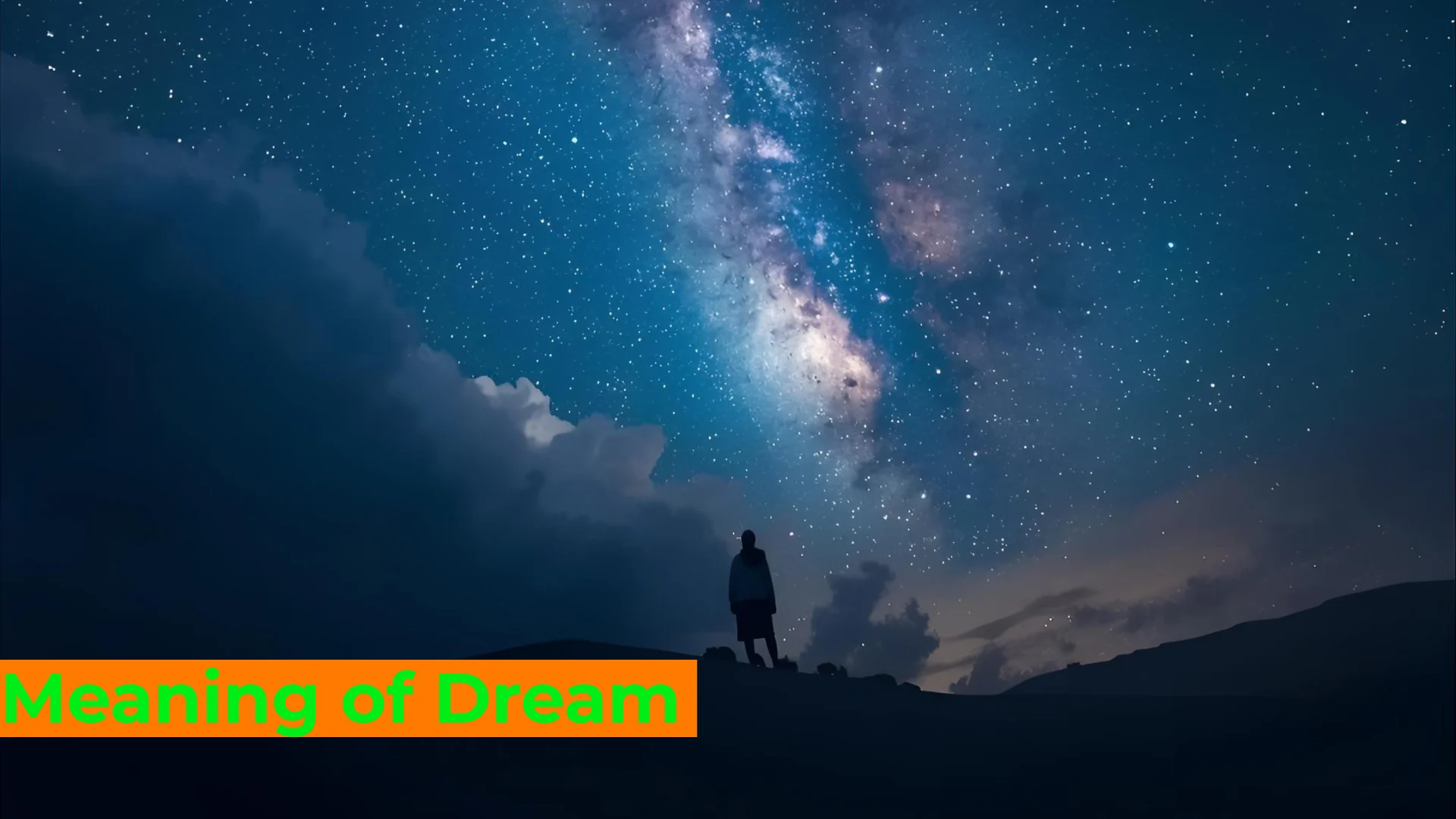🌟 Introduction: When the Shadows Come Alive
I still remember the first time I woke up breathless, drenched in sweat, after dreaming of a dark shadow lunging toward me. It wasn’t just an ordinary dream—it felt real, almost as if the shadow had weight and intention. Many of us have experienced this: a faceless figure, a black mass, or a dark silhouette that seems to follow, chase, or even attack in our dreams.
Dreams of black shadows attacking can feel terrifying, but they are not always negative. Shadows in dreams carry layers of symbolism—fear, the unknown, hidden emotions, or even deep spiritual messages. From psychology to spirituality, cultures around the world have long tried to interpret what these shadowy figures mean.
In this guide, we’ll explore the meaning of dreaming about a black shadow attacking you—from ancient interpretations to modern psychology, spiritual traditions, and healing insights.
🏺 Historical & Anthropological Background
Shadows have always fascinated humans. Across different civilizations, the idea of dark figures in dreams often carried spiritual or mystical meanings.
- Ancient Egypt: Dreams involving shadows were seen as messages from the underworld. Black figures were thought to be protectors of hidden wisdom or messengers from ancestors.
- Greek & Roman Times: The Greeks believed shadows in dreams represented the psyche or “soul double.” Romans often connected them with omens of unresolved conflict.
- Native Traditions: Many Indigenous cultures interpret shadow beings as spirit messengers—guides who test the dreamer’s courage and resilience.
- Asian Cultures: In Chinese traditions, black shadows were sometimes linked to energy imbalances, such as stagnant chi or blocked emotions.
Over time, these interpretations spread, adapting to different cultural lenses. While some viewed shadows as evil or harmful, others saw them as necessary symbols of transformation and growth.
🧠 Psychological & Healing Interpretations
From a psychological perspective, dreams of shadows attacking often point to our subconscious.
Jungian Perspective
Carl Jung, the famous Swiss psychologist, described the “Shadow Self” as the hidden part of our personality—our fears, suppressed desires, and unacknowledged traits. When a shadow attacks in a dream, it may symbolize:
- Confronting unresolved trauma
- Struggling with guilt, shame, or fear
- Facing the parts of ourselves we deny or repress
Modern Psychology
- Stress & Anxiety: Dreams of being attacked often mirror waking-life stress or unresolved conflicts.
- Sleep Paralysis: Some people experience “shadow figures” during sleep paralysis, where the body is frozen but the mind is semi-conscious.
- Healing Symbol: Being attacked by a shadow could also represent the mind’s attempt to force recognition of hidden pain, urging healing.
👉 Healing Tip: Writing in a dream journal, meditating, or talking with a therapist can help decode what the shadow represents in your personal life.
🙏 Spiritual & Religious Perspectives
Dreams of black shadows carry spiritual weight across many traditions.
- Christianity: Often seen as temptations, demons, or spiritual warfare. But in some cases, shadows may symbolize trials of faith.
- Islam: Black figures in dreams may represent unseen entities (jinn) or inner struggles with the nafs (ego).
- Native Spirituality: Shadows may not be evil but rather teachers testing courage and guiding the dreamer toward self-awareness.
- Modern Spirituality: Many interpret shadow dreams as energy blockages or karmic lessons. They can also signal a call to spiritual awakening.
🔮 Deeper Symbolism: Strength, Resilience & Inner Healing
While terrifying at first, dreams of black shadows attacking can hold empowering messages.
- Facing Fears: The shadow often embodies fears we’ve avoided. Facing it in dreams can strengthen resilience.
- Protection: Some traditions believe shadows attack not to harm but to protect, warning us against dangerous choices.
- Transformation: Shadows symbolize the “dark night of the soul”—a necessary stage before spiritual growth.
- Inner Healing: Confronting shadow figures may help release old traumas, leading to deeper emotional healing.
👉 Sometimes, what feels like an attack is actually an invitation to reclaim lost strength.
⚧ Gender-Based Meanings
Interestingly, the meaning of shadow dreams can shift depending on gender.
- For Women: A shadow attacking may symbolize repressed feminine power, suppressed emotions, or struggles with societal expectations. It can also reflect conflicts with masculine energy figures in life (father, partner, authority).
- For Men: It may represent inner doubts, struggles with aggression, or confrontation with suppressed vulnerability. The shadow could symbolize competition, guilt, or repressed emotional needs.
📍 Placement & Body Location Meanings
Although less common in dreams than in tattoos or symbols, where the shadow attacks or touches you in the dream can have meaning:
- Head/Face → Mental stress, identity struggles, overthinking
- Chest/Heart → Emotional wounds, unresolved grief, matters of love
- Back → Past burdens, betrayal, hidden struggles
- Hands/Arms → Control, creativity, or power being challenged
- Legs/Feet → Feeling stuck, lack of progress, resistance to change
🎨 Design & Color Symbolism
Not all shadows in dreams appear the same. The color and form of the shadow can alter meaning:
- Pure Black → Deep fear, the unknown, unconscious forces
- Gray Shadow → Confusion, uncertainty, lack of clarity
- Red-Tinged Shadow → Anger, passion, conflict
- Blue Shadow → Sadness, peace-seeking, hidden calm
- Shapeless Mass → General fear, anxiety, lack of direction
- Human-Shaped Shadow → Confrontation with self or specific people in life
⚖️ Cultural Debate: Respect vs. Appropriation
When interpreting shadow dreams, especially through Native or Indigenous perspectives, sensitivity is key.
- Respect: Many Indigenous traditions view shadow beings as sacred messengers, not just symbols of fear.
- Appropriation: Borrowing these interpretations without acknowledging their roots can disrespect cultural traditions.
- Balance: Use cultural insights for learning and self-growth, while giving credit to the traditions they come from.
📚 Real-Life Stories & Examples
- Maria’s Story: A woman dreamed of a black shadow choking her during stressful exams. Later, she realized the shadow embodied her own fear of failure.
- James’s Story: A man repeatedly dreamed of a shadow chasing him. In therapy, he discovered it represented unresolved childhood trauma. Facing the shadow helped him heal.
- Anonymous Story: In Native traditions, some dreamers share experiences where shadows attacked only to reveal protective ancestral guidance later.
These stories show that while terrifying, such dreams can be turning points toward awareness and healing.
❓ FAQs
1. Are shadow dreams always bad?
Not always. They can represent fear, but also growth, transformation, or protection.
2. Why do I feel paralyzed when dreaming of shadows?
This may be linked to sleep paralysis, a natural state where the mind wakes before the body does.
3. Can shadow dreams predict the future?
Most often, they reflect inner emotions and subconscious struggles rather than literal predictions.
4. How can I stop dreaming of black shadows attacking me?
Reducing stress, practicing meditation, and confronting unresolved issues often help.
5. Is it spiritual or just psychological?
It can be both—psychology explains the mind, while spirituality explores the soul’s message.
🌌 Conclusion: Embracing the Shadow
Dreams of black shadows attacking may leave us shaken, but they are rarely meaningless. They invite us to confront fears, explore hidden truths, and embrace transformation. In many ways, the shadow is not the enemy—it is the teacher. By facing it with courage, we may discover resilience, inner healing, and spiritual growth.
So next time a shadow comes for you in a dream, instead of running, pause and ask: What part of me is calling to be seen?


